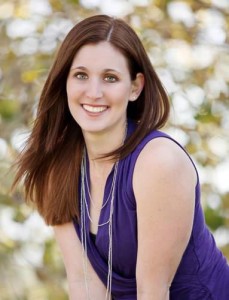Hi Framers, Happy Monday!
MFA Monday typically centers on musings from local holders of Master of Fine Arts, but for this series we’ve got something a little different! For the next three weeks we will get to hear from a contributor all the way from California…drrrrum rrrolll please:
Part 1 of 3
As I sit here trying to figure out how to start writing about my experience in graduate school, I am becoming keenly aware of my many mixed feelings about my time there and my time since. So here is to hoping that whatever comes out here makes some sort of sense, for me if no one else.
First let me say that if I could go back and do it all again, I would have waited a few years after undergrad before going to graduate school. I started my doctorate at age 22, immediately after completing my BFA. A lot happened in the subsequent five years of my life while I was in school and working on my dissertation. Your early twenties are incredibly formative years, but I wouldn’t know because I spent them ALL in school. So all I know is how formative graduate school can be.
The moment I learned that a field called “Dance Studies” existed, something in me shifted. Growing up with parents who were teachers and in an academically rigorous community, I have always enjoyed traditional learning. But dance was always my passion. Until college, I thought the two things existed separately.
Although I have danced since I was a child, I’ve never thought of myself as much of an artist. When I was given the choice to write a thesis or choreograph a concert for my Senior Project in undergrad, I only considered the concert option for about 15 seconds. I wanted to write. I was interested in the research process and wanted to be a part of something that blew people’s minds the way Dance Studies did for me when I was 19. After dancing and thinking separately for two decades, I was excited to discover a place where both worked together. I’m not suggesting that choreographing and performing doesn’t require both activities simultaneously, because it certainly does. For me, growing up dancing meant just replicating with no thinking. And while I logically understand that both can, and do, happen in the same body at the same time, I am not sure I have ever fully understood how to make that happen for myself. Even to this day, I don’t fancy myself much of an artist and am incredibly insecure about my own artistic process and choreographic product. But give me a page and I will write! Give me an inspired theoretical text and I will happily analyze movement! In fact, at my going away party before I moved for grad school, I remember a conversation with a dear girlfriend and brilliant choreographer. She couldn’t quite understand why I was choosing to subject myself to even more schooling immediately after graduation. I remember telling her, “I want to be able to write about what you do. I want help people know it exists and remember that it exists for the rest of time.” So when I was 22, that was my plan: To write. About dance. Beyond that, I had no idea what graduate school and a doctorate in dance meant. This should have been my first clue…
I was excited for the letters after my name. I was excited because it sounded cool. But, frankly, the whole thing was hardly planned. I applied because it came recommended from a trusted mentor and I didn’t have any other plans. I honestly didn’t think I’d get in. In retrospect, I wish I hadn’t. I wish I could have taken an extra year to work, even if it meant working as a caterer, to think about life, about myself, and what I wanted in my future. I could have read more, increased my vocabulary, and written more. I would have interacted with more people, learn what life was like outside of that of a full-time student, and simply enjoyed a moment in my 20s before real life became too permanent and demanding.
I think that year in between would have helped me avoid the panic attack I had the third week of classes. Towards the end of a seminar, in a small and crowded room, after trying to stay calm for several weeks, the realization that I simply had no idea what I was doing came flooding over me. It turns out everyone in graduate programs are REALLY smart (usually). It’s like having a class full of only the smart kids that raise their hands. Let me clarify, it’s not “like” that, it is that. This is really intimidating for the quiet 22 year old who is keenly aware of her own inexperience. So in that moment, I couldn’t figure out why I’d moved away from everything I knew. I couldn’t figure out how I came to sit in a room with so many people who were so much smarter than me. I was convinced that I’d never succeed, that I’d possibly even truly fail for the first time ever. Suddenly, the classroom door got farther and farther away, the tears welled up and I realized that I would not get through graduate school without crying in public…
Now, I’m not suggesting that a year serving food and working for minimum wage would have kept me from crying in graduate school, but I do think it would have made me more confident and more self-assured. I think I could have come in with a better perspective of the world and not one developed solely from books and research. Or maybe even a master’s program would have helped. I thought I was on the fast-track because I was special, smarter than the average bear. And I might have been. But no matter how good I felt when I got that acceptance letter, no matter how smart I may have been in undergrad, I found myself in a room with a collection of people that still, to this day, are the smartest people I know, with more experience, more knowledge, and more skill than I had in that moment. If there is one thing I am confident in in life, it’s my intelligence. But graduate school is NOT real life. These people were/are really brilliant. I was too inexperienced to have confidence in my own intelligence in that moment (and many more to follow).
The one thing I wish someone had told me before I went to school was: “Wait, not yet, maybe next year.” Graduate school is only what you make of it, so be sure you have all the tools and resources you might need to get the most out of it. It’s like trying to paint the walls before you’ve done the primer. It’ll get done, but the color could be sharper and last longer if you prime it first.
Stay tuned for more from Dr. Alexis Weisbord!

Dr. Alexis A. Weisbord received her BFA in Dance from University of Minnesota and her PhD in Critical Dance Studies from UC Riverside. Alexis was a competitive dancer in high school and later spent over ten years directing dance competitions throughout the US. Her dissertation was entitled “Redefining Dance: Competition Dance in the United States” and she has a chapter, “Defining Dance, Creating Commodity: The Rhetoric of So You Think You Can Dance,” in the forthcoming Oxford Handbook of Dance and the Popular Screen. Alexis has held positions as Lecturer in Global Studies at UC Riverside and Associate Faculty in Dance at Norco College. Currently she is an Associate Faculty member at Mt. San Jacinto College, Managing Director for The PGK Dance Project in San Diego, and founder/co-director of an emerging dance company, Alias Movement.
